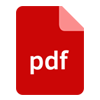Program and Documents
Monday, October 12
14:00 - 14:25 CET |
|
Opening
Introduction:
Remarks:
|
14:30 - 15:10 CET |
|
Discussion
Speakers:
|
15:15 - 16:00 CET |
|
Discussion
Speakers:
|
16:15 - 16:45 CET |
|
Žofín Conversation
Speakers:
|
17:00 - 17:45 CET |
|
Václav Havel Human Rights Symposium
Speakers:
|
18:00 - 18:45 CET |
|
Discussion
Speakers:
|
19:00 - 19:45 CET |
|
Discussion
Speakers:
|
19:45 - 20:00 CET |
|
Coffee Table Conversation
Speakers:
|
Tuesday, October 13
14:00 - 14:15 CET |
|
Opening
Introduction:
Remarks:
Moderator:
|
14:15 - 15:00 CET |
|
Discussion
Speakers:
|
15:15 - 15:45 CET |
|
Discussion
Speakers:
|
15:45 - 15:50 CET |
|
Keynote speach |
16:15 - 17:00 CET |
|
Discussion
Speakers:
|
17:00 - 17:15 CET |
|
Break |
17:15 - 18:00 CET |
|
Discussion
Speakers:
|
18:15 - 18:45 CET |
|
Žofín Conversation
Speakers:
|
19:00 - 19:45 CET |
|
Discussion
Speakers:
|
19:45 - 20:00 CET |
|
Coffee Table Conversation
Speakers:
|
Wednesday, October 14
14:00 - 14:40 CET |
|
Opening
Speakers:
|
14:45 - 15:15 CET |
|
Žofín Conversation
Speakers:
|
15:15 - 15:45 CET |
|
Gallery
Speakers:
|
16:00 - 16:45 CET |
|
Václav Havel Human Rights Symposium
Speakers:
|
17:00 - 17:30 CET |
|
Discussion
Speakers:
|
17:30 - 18:30 CET |
|
Discussion
Speakers:
|


